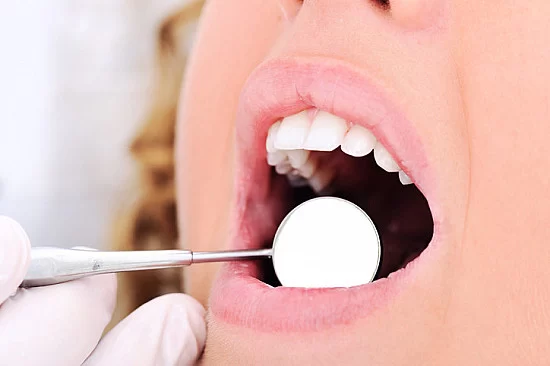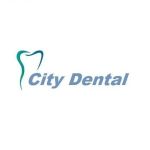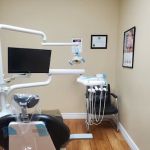
What I Learned About Protecting My Aging Parent’s Oral Health
1. The Day Everything Changed at a Routine Dental Checkup
It started out like any ordinary day. I had taken my 72-year-old father for his routine dental cleaning. He had always been pretty healthy and didn’t complain much. But this time, the dentist’s tone changed. There was redness, swelling, and signs of infection around his gums. It was mild, but left untreated, it could’ve turned serious.
That was the wake-up call I needed. I had always focused on his medication schedule, doctor appointments, and diet—but oral care somehow got pushed to the sidelines. What I learned in the weeks that followed opened my eyes to how common and dangerous oral infections can be in seniors, and more importantly, how preventable they really are.
2. Why Oral Infections Are More Common in Seniors
As we age, our bodies become more vulnerable to infections, and the mouth is no exception. I discovered that seniors are at a higher risk of oral infections for several reasons:
- Decreased saliva production due to medications or age-related conditions, which weakens the mouth’s natural defense system.
- Receding gums that expose tooth roots, making them easier targets for bacteria.
- Weakened immune systems that don’t fight off infections as effectively as they once did.
- Difficulty maintaining regular brushing and flossing habits due to arthritis or cognitive decline.
What shocked me most was learning how an untreated gum infection could potentially lead to much bigger health problems—like heart disease, pneumonia, and even complications with diabetes. This wasn’t just about teeth anymore. It was about his overall health and quality of life.
3. Our Daily Routine to Keep Oral Infections at Bay
Once we understood the risks, we got serious about prevention. I worked with his dentist to build a routine tailored to his needs. Here’s what made a real difference:
- Switching to an Electric Toothbrush: My dad’s arthritis made it hard to grip a regular toothbrush. The switch helped him clean more effectively with minimal effort.
- Using Antibacterial Mouthwash: His dentist recommended a non-alcohol-based mouthwash that helped kill harmful bacteria without drying his mouth.
- Daily Flossing with Tools: Floss picks and interdental brushes became his go-to. They were easier for him to handle and reached tricky spots better than traditional floss.
- Hydration and Sugar-Free Gum: To combat dry mouth, we increased his water intake and added xylitol gum to his day. That extra saliva boost made a big difference.
- Biannual Dental Visits: We no longer skipped or delayed appointments. Catching early signs of infection became the key to staying ahead.
4. When Dentures and Oral Devices Complicate Things
One of the biggest culprits of oral infections in seniors is poorly fitting dentures. At one point, my dad started developing sores under his upper plate, and I noticed a foul odor when he talked. Turns out, his dentures weren’t fitting properly and were trapping bacteria.
We had them adjusted, but also learned how essential it is to clean them daily. Not a rinse-under-the-faucet type of clean, but a proper soak and brush. He now uses a sonic denture cleaner every night, and it has completely transformed his oral comfort.
If your loved one uses any oral appliance—dentures, bridges, or even night guards—make sure they are disinfected regularly. Poor hygiene here is like rolling out a red carpet for infection.
5. Navigating Oral Care with Cognitive Decline
A few years after our oral health routine began, my dad was diagnosed with early-stage dementia. At first, it didn’t impact much. But over time, brushing his teeth became inconsistent. He’d forget if he had brushed or sometimes refused help.
We adapted by:
- Creating a visual chart to track morning and evening hygiene
- Turning brushing into a social activity—I’d brush with him to encourage routine
- Switching to simpler tools like foam-handled toothbrushes
- Scheduling professional cleanings every 3 months instead of 6
It wasn’t always easy, but making it part of our caregiving routine helped prevent setbacks like infections or gum bleeding. The few times we did slip up, his dentist caught early inflammation and treated it before it escalated.
6. Watch for These Subtle Warning Signs
Seniors may not always express discomfort clearly. Here are the early warning signs I learned to look for:
- Red, swollen, or bleeding gums
- Bad breath that doesn’t go away with brushing
- Pain when chewing or increased sensitivity
- Sores or patches on the tongue or gums
- Loose teeth or dentures that suddenly feel uncomfortable
Acting fast is key. Even minor changes can be the start of a serious infection. If anything felt off, I’d immediately book an appointment—and more often than not, it was worth it.
7. Finding the Right Support Makes All the Difference
I can’t stress enough how important it is to work with dental professionals who understand geriatric care. Not every clinic is equipped to handle the unique needs of older adults. Through Dentistry Toothtruth, I found a nearby dental practice that specializes in senior oral health. They offer calm, personalized service and even helped us navigate insurance for preventive procedures.
When you're caring for someone aging—or aging yourself—oral health should never be overlooked. It’s not just about teeth; it’s about maintaining dignity, comfort, and health as we grow older.







 Sweet City Smiles5.0 (513 review)
Sweet City Smiles5.0 (513 review) Hillside Family Dentistry4.0 (108 review)
Hillside Family Dentistry4.0 (108 review) Jae Chae DMD4.0 (26 review)
Jae Chae DMD4.0 (26 review) Eastern Dental4.0 (551 review)
Eastern Dental4.0 (551 review) Densley Dental4.0 (260 review)
Densley Dental4.0 (260 review) Arlington Dental Group and Orthodontics4.0 (210 review)
Arlington Dental Group and Orthodontics4.0 (210 review) The Importance of Oral Health Education During Pregnancy for a Healthy Pregnancy
The Importance of Oral Health Education During Pregnancy for a Healthy Pregnancy Best Tips for Brushing Your Teeth Properly for Healthy Gums: Essential Techniques for Oral Health
Best Tips for Brushing Your Teeth Properly for Healthy Gums: Essential Techniques for Oral Health Why Skipping Dental Checkups Can Lead to Bigger Oral Health Problems
Why Skipping Dental Checkups Can Lead to Bigger Oral Health Problems Advantages of Porcelain Dental Restorations
Advantages of Porcelain Dental Restorations How Can Diabetes Cause Tooth and Gum Problems? Preventing and Managing Oral Health Issues
How Can Diabetes Cause Tooth and Gum Problems? Preventing and Managing Oral Health Issues Healthy Habits for Promoting Good Oral Health and Hygiene: Tips for a Healthy Smile
Healthy Habits for Promoting Good Oral Health and Hygiene: Tips for a Healthy Smile